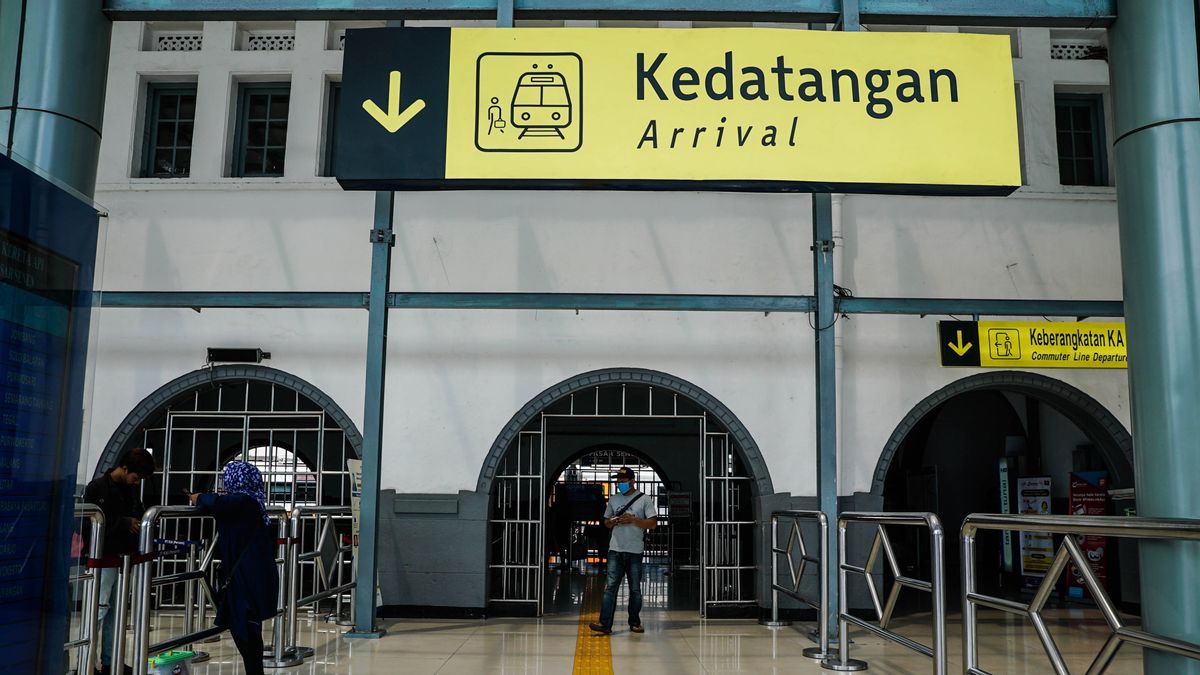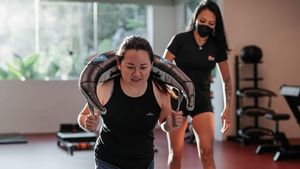JAKARTA - Long-distance train users no longer need to apply for an exit and entry permit (SIKM) to and from Jakarta. Even so, train users still have to check for COVID-19 before traveling.
VP of Public Relations of Kereta Api Indonesia (KAI), Joni Martinus, said that this follows the decision of the DKI Provincial Government to abolish SIKM for all people traveling, both private vehicles and public transportation.
"People now find it easier to take long-distance trains with relations from and to DKI Jakarta. This is because the SIKM letter requirement has been canceled by the DKI Jakarta Provincial Government," Joni told reporters, Thursday, July 16.
As a substitute for SIKM, prospective passengers are currently being asked to fill out the Corona Likelihood Metric (CLM) service on the JAKI application which can be downloaded on their respective cellphones.
CLM is an application-based COVID-19 symptom identification system called JAKI that can be downloaded on each cellphone. The CLM system processes the answers and information provided to display results, whether the user is indicated by COVID-19 or not.
In the application, there are several self-assessment questions that must be answered by residents who wish to travel. Then, the system will score residents' answers to indicate whether they are safe in traveling.
After the examination is declared safe for travel, the filler can upload the CLM test results along with a photo of themselves and an electronic KTP. Meanwhile, if not, the community has not been allowed to travel.
If it is not declared safe, the system will recommend the person to perform an inspection. The system will display the inspection schedule.
In addition, Joni said that long-distance train users still need to carry out a COVID-19 test, either a swab polymerase chain reaction (PCR) test or a rapid test. Only the test results that show information that is free of COVID-19 are allowed to travel.
"People who want to use long-distance trains during the New Habit Adaptation period are still asked to show COVID-19 free letters, both PCR and rapid tests which are valid for 14 days from issuance," he said.
If the area of origin still does not have a COVID-19 examination facility, prospective train passengers may only show a symptom-free certificate such as influenza issued by a hospital doctor or puskesmas.
"It is hoped that the changes to these conditions can increase public interest in taking the train while still implementing strict health protocols," he said.
In general, every train customer is still required to be in good health, with a body temperature of not more than 37.3 degrees Celsius, to use a mask, to wear long-sleeved clothes, to maintain distance, and to wash hands regularly.
Joni said, long-distance train customers are required to wear the face shield provided by KAI during the trip until they leave the destination station area. Customers under 3 years of age are asked to provide their own face shield.
"The protocol must be obeyed starting from departure, during the journey, and arriving at the destination station. The goal is for trains to become a mode of transportation that is safe, comfortable, safe, and all customers are healthy when they arrive at their destination, "he said.
Train tickets are sold from D-7 on the KAI Access application, the KAI website, and other official KAI sales partners. Meanwhile, ticket sales at station counters are only served 3 hours before the scheduled departure.
The English, Chinese, Japanese, Arabic, and French versions are automatically generated by the AI. So there may still be inaccuracies in translating, please always see Indonesian as our main language. (system supported by DigitalSiber.id)











